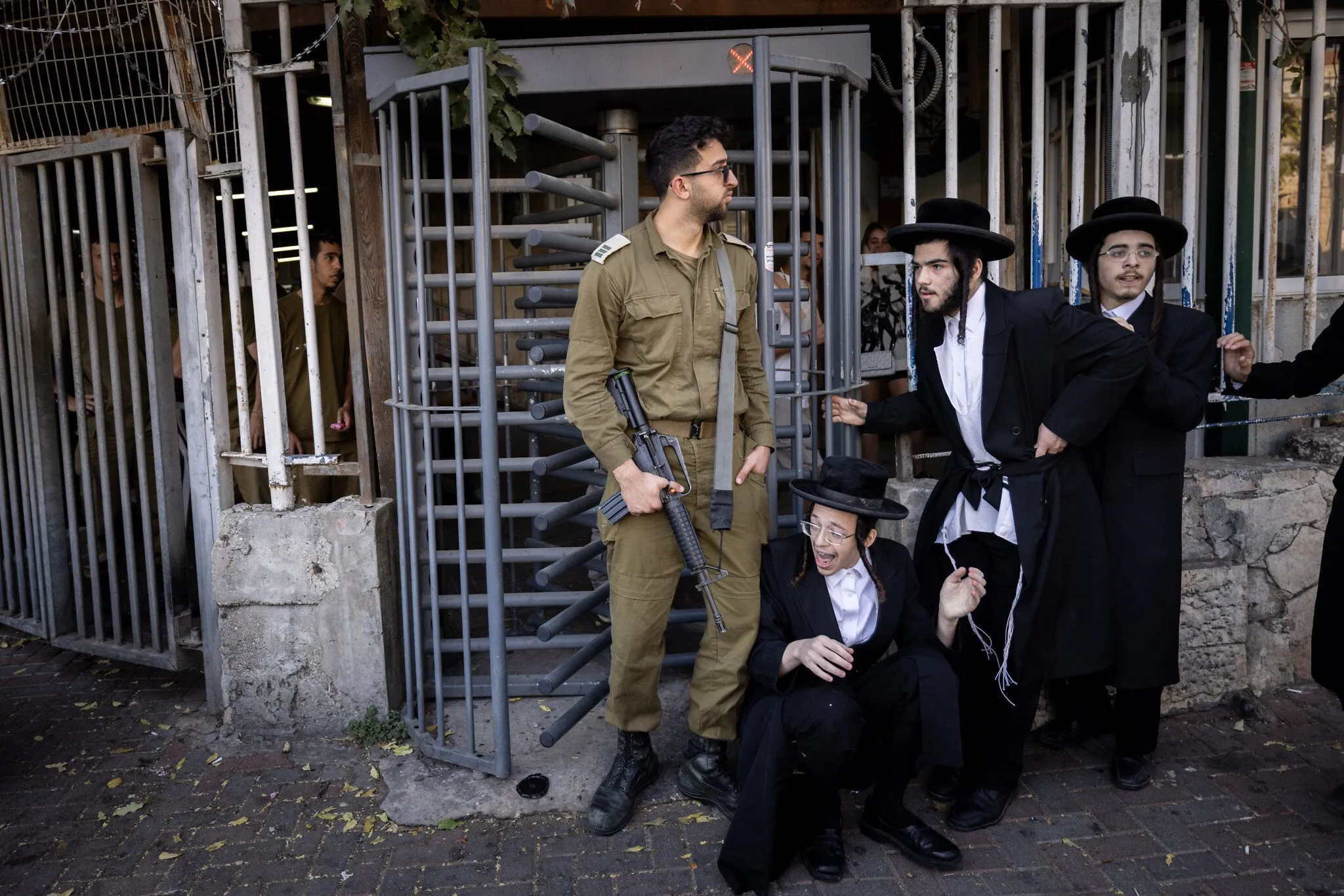Inside the Rising Tensions: Israel’s Ultra-Orthodox Community Faces a Draft Dilemma
In the heart of Israel, a complex and deeply divisive issue is unfolding, threatening to reshape the nation’s social fabric and military conscription policies. The ultra-Orthodox community, known as Haredim, finds itself at the center of an intense debate about military service, national identity, and social responsibility.
The Historical Context
For decades, ultra-Orthodox Jewish men have been exempt from mandatory military service, a privilege rooted in a decades-old arrangement that allowed them to dedicate their lives to religious study. This exemption, originally established in 1948 to preserve Jewish scholarly traditions in the aftermath of the Holocaust, has become a contentious political and social issue.
The Growing Demographic Challenge
The ultra-Orthodox population has been experiencing rapid demographic growth, with high birth rates significantly increasing the number of young men who are technically eligible for military service but do not enlist. This demographic shift has created mounting pressure on Israel’s military and social systems.
Current Tensions and Challenges
Several key factors are driving the current draft dilemma:
- Ongoing Conflict: The recent war in Gaza has intensified calls for universal military service
- Supreme Court Pressure: The Israeli Supreme Court has set a deadline for a new draft plan
- Political Complexity: Ultra-Orthodox parties hold significant power in the current government
“We are at a critical crossroads,” says Dr. Yitzhak Cohen, a social policy expert. “The question is no longer just about military service, but about the very fabric of Israeli society.”
Community Perspectives
The ultra-Orthodox community is not monolithic in its response. While many traditionalists remain staunchly opposed to military service, a growing number of young men are expressing interest in integration:
- Some view military service as a potential pathway to broader social and economic opportunities
- Others fear cultural assimilation and potential erosion of their religious identity
- A segment of the community argues that their volunteer work during crises should be recognized as an alternative form of national service
The Social and Personal Stakes
The draft debate extends far beyond military requirements. For many ultra-Orthodox individuals, enlisting carries significant personal and social consequences:
- Social Stigma: Those who choose to serve may face rejection from their communities
- Marriage Prospects: Military service can impact potential marriage opportunities
- Cultural Identity: Concerns about losing connection to religious traditions
Political and Legal Landscape
Prime Minister Benjamin Netanyahu faces a delicate balancing act. The ultra-Orthodox political parties are crucial coalition partners, making any significant changes to draft policies politically sensitive.
Potential Solutions
Emerging approaches include:
- Gradual integration programs
- Specialized military units respecting religious requirements
- Alternative national service options
Broader Implications
The draft debate reflects deeper questions about Israeli democracy, social cohesion, and national identity. It challenges long-standing arrangements and tests the nation’s ability to balance religious autonomy with collective responsibility.
Conclusion
As Israel confronts this complex issue, the outcome will likely have far-reaching consequences for the nation’s social dynamics, military readiness, and cultural landscape. The resolution will require nuanced understanding, dialogue, and a commitment to finding balanced solutions.
The draft dilemma is more than a legal challenge—it is a profound reflection of Israel’s ongoing struggle to define national unity in a diverse and complex society.
Note: This article represents a balanced perspective on a complex and evolving issue, drawing from multiple sources and perspectives within the Israeli context.






Leave a Comment